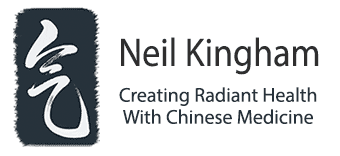Taoist Yangsheng: Preserving Life At All Costs

Last weekend I was lucky enough to be able to spend the day at a series of conferences and workshops entitled ‘The Embodiment of the Dao: Daoist Yangsheng Practices and the Cultivation of Health and Vitality’. It was an inspiring and informative day, and I’d like to share some of what I learned…
In the morning Dr. Vivienne Lo talked about the history of Yangsheng self-care practices, and discussed their relevance and importance to the modern day.
She emphasised that the key components of health have always been to keep moving, and eat a healthy seasonal diet, adding that though this is common sense, it is not common practice! To me, this shows the importance of Qi Gong and Taiji, and Chinese Dietary Therapy/Nutrition as the cornerstone practices for good health.
Professor Jiao Guocheng from the Renmin Peoples University of China then spoke on the Taoist approach to life and practice of self-care techniques.
He contrasted the pressures of the modern world with the simple Taoist beliefs – today we strive for success, wealth and fame at the cost of our health, while to the Taoists, health and well-being were precious treasures to be guarded and preserved at all costs.
He quoted from Taoist philosopher Chuang-Tzu, who said the modern way is like “shooting a sparrow on a high cliff with priceless pearls”. The pearls represent your life and health which you waste, the sparrow is the uncertain profit that you aim for, and the cliff is the dangers that you face along the way.
In the afternoon we were treated to demonstrations and workshops by Abbot Liu Suibin (pictured) on Qingcheng Qigong and martial arts, and Abbot Wang Chengya on Daoist Five Phase Kung Fu.
Some of these forms were extremely simple, but had very powerful effects – as Westerners we often complicate things when we don’t need to, but the Taoist way is simplicity itself.
In my clinic I see countless health problems of all kinds caused by poor diet over a long period, stress, and lack of exercise and bad posture. These are truly the health problems of the modern Western world, and we are all prey to them to a greater or lesser extent!
In my mind, the Taoist Yangsheng practices for self-care have enormous relevance in the modern day (That’s why I created the Radiant Health System- a framework for using these ancient practices in the modern world. You can find out more about that here)
Qigong and Taiji practice help to calm the mind and reduce stress, and work the physical body to maintain suppleness, balance and movement. Proper eating practices, as described by Chinese Nutrition, help to maintain the body and mind by ensuring that we get sufficient nourishment.
These two foundation practices of good health can provide an antidote to ‘the modern condition’ and help us to nourish rather than squander life, and live longer, with better health and greater happiness. The Yangsheng self-care practices are as relevant today as they were thousands of years ago…






Thanks Neil. Sounds like a great day. I love the Chuang Tzu quote about the pearls, so true! Very hard to do in practice tho, I think. Hard to avoid the rat-race. Maybe thats where meditation and qi gong come in?